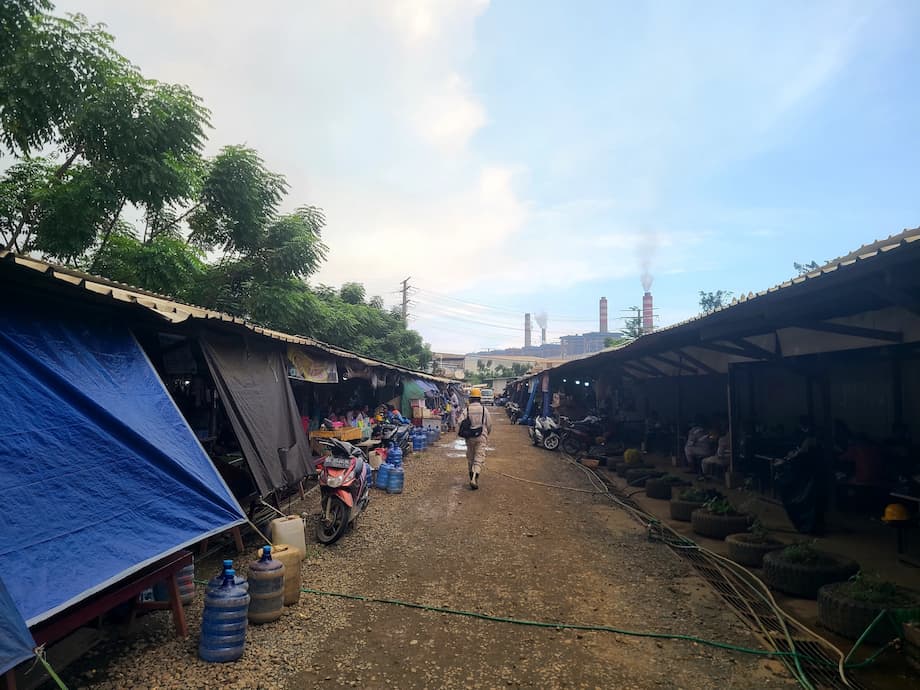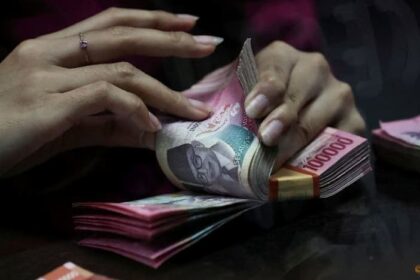Inside the nickel surge in Indonesia
On remote islands in eastern Indonesia, the race to supply the world with battery metals has created a new industrial frontier. Indonesia holds more than 40 percent of the world’s identified nickel and now produces a dominant share of global supply. That position has been built at speed with the help of tens of thousands of Chinese migrant workers who have arrived to run blast furnaces and high temperature kilns in sprawling industrial parks. Their labor fuels electric vehicles and renewable energy systems in distant markets, yet it often takes place in extreme heat, under punishing schedules, and with persistent safety risks.
- Inside the nickel surge in Indonesia
- How Indonesia built a nickel powerhouse
- Life inside the parks work pay and restrictions
- Safety record under pressure
- Environmental and community costs
- Tensions and coexistence on the factory frontier
- Regulation oversight and global pressure
- Why nickel matters to EVs and what may change
- Key Points
The journey usually starts far from the tropics. Workers from provinces across northern and central China take flights and ferries to reach Indonesia Morowali Industrial Park in Central Sulawesi or Indonesia Weda Bay Industrial Park in North Maluku. Many had steady jobs in steel or construction before those sectors slowed. In Indonesia, they put in 12 hour shifts to produce nickel pig iron for stainless steel and nickel matte for battery chemicals. Pay can be two or three times higher than in their hometowns, enough to support families and pay debts. The tradeoff is time away from home and a life largely confined to dormitories and workshops inside guarded compounds.
Indonesia’s transformation began after policymakers prioritized domestic processing. A ban on exporting unprocessed ore in 2014, later tightened in 2020, brought a wave of investment from Chinese companies led by Tsingshan Holding Group. The result is a network of industrial parks, private ports, and coal fired power stations that operate around the clock. In these factory towns, rules are tight and production targets are high. For years, companies commonly confiscated passports of Chinese employees, a practice Indonesian authorities have recently prohibited, and many workers still report restrictions on movement beyond the gates.
This boom has built new towns and created opportunities for local businesses. It has also reshaped daily life for neighboring villages. People complain about dust from ore stockpiles, frequent truck traffic, and smoke from stacks. Clinics report more cases of coughs and asthma. Fishermen say their catch has fallen as coastal waters turn murkier near offloading points and smelter outfalls. Even those who benefit feel the strain of living beside heavy industry.
One longtime resident in Sulawesi who took construction work near a smelter captured the ambivalence that many neighbors feel.
The air is not good, but we have better living standards.
That tension sits at the heart of Indonesia’s nickel gamble. The country has moved up the value chain and won a central place in clean energy supply chains. The costs, measured in accidents, pollution, and social friction, are harder to tally and slower to fix.
How Indonesia built a nickel powerhouse
A decade ago, most nickel ore dug in Indonesia went straight onto barges bound for China. Jakarta changed that by requiring companies to add value at home. The export restrictions, coupled with generous industrial permits and political backing, prompted Chinese firms to build smelters and refineries inside Indonesia. As of recent counts, more than 40 nickel smelters operate in the country, many clustered in gated industrial parks with dedicated ports and power plants.
From export ban to industrial parks
Indonesia Morowali Industrial Park in Central Sulawesi was established in 2013 and has grown into one of the world’s largest nickel and stainless steel complexes. Indonesia Weda Bay Industrial Park in North Maluku followed, turning a forested coastline into a maze of workshops, furnaces, and conveyor belts that feed the furnaces. Employment in nickel across these parks now runs into the hundreds of thousands. At individual sites the workforce numbers are in the tens of thousands, with Chinese nationals a minority but concentrated in managerial and technical roles. Local employees, many new to heavy industry, learn on the job while facing the same production pressures as their Chinese coworkers.
These facilities produce several forms of nickel. Nickel pig iron feeds stainless steel mills. Nickel matte and mixed hydroxide precipitate flow into cathode materials for electric vehicle batteries. High pressure acid leach units, a technology known as HPAL, extract nickel from lower grade laterite ore and generate acidic waste that must be carefully managed. The parks run on their own coal fired power stations, an expedient choice that keeps energy cheap but adds to pollution and climate emissions.
Chinese investment has poured in through companies such as Tsingshan and joint ventures with Indonesian partners. Analysts estimate tens of billions of dollars have been committed since the export bans, lifting Indonesia’s share of global nickel output to about 60 percent. That dominance gives Jakarta leverage in global supply chains. It also magnifies the consequences when safety or environmental standards fall short.
Life inside the parks work pay and restrictions
Daily routines in the smelters revolve around heat and time. Furnaces do not rest, so crews rotate in long shifts and overtime is common. Workers describe an average workweek of roughly 56 hours and frequent night duty. Protective gear is issued, but complaints persist about shortages, inconsistent training, and pressure to keep lines running during maintenance delays. Heat stress, burns, and respiratory problems are recurring hazards.
Pay and remittances
Higher pay is the magnet. Many Chinese workers earn more than triple their likely take home pay in China, enough to finance home renovations, healthcare for parents, or education for children. Indonesians hired into entry level jobs often see their incomes jump relative to farming or fishing. Wage gaps remain a source of friction. Chinese technicians and supervisors usually earn more, and many contractor roles for locals are less secure and come with fewer benefits.
Movement and documentation
A particularly sensitive issue has been control over passports and freedom of movement. For years, Chinese employees reported that managers held their passports and restricted travel outside the parks. Indonesian authorities have moved to outlaw passport confiscation, and companies say they are complying. Workers still describe practical limitations, from company rules that limit trips into nearby towns to security policies that keep Chinese employees inside the compound after unrest. Labor groups and investigative researchers have also documented other recurring abuses.
- Passport confiscation and delayed return of documents
- Withholding or late payment of wages
- Restricted movement on and off site
- Inadequate safety training and gear
- Gaps in work permits and unclear contracts
- Physical intimidation when rules are challenged
These practices, when present, match common indicators of forced labor defined by international conventions. They also erode trust on the shop floor and make it harder for workers to speak up about hazards before accidents occur.
Safety record under pressure
A string of deadly incidents has turned a spotlight on safety. In late 2023, a furnace explosion at a plant inside the Morowali park killed 21 workers and injured dozens more. Additional fatal accidents were recorded in October 2024 and early 2025, with production lines resuming quickly after emergency responses. Civil society groups tracking the sector counted more than 100 deaths and over 200 injuries at Chinese backed nickel facilities across Indonesia since 2015, nearly half of the deaths at Morowali.
Communication and training gaps
Workers and unions often describe a fast moving environment where production comes first. Reports point to a mix of root causes: limited protective gear, insufficient emergency drills, and communication failures between Indonesian and Chinese teams. Language barriers slow responses and hinder safe handovers. Crews complain that sick days can bring penalties and that damaged equipment is kept running until a full stop is unavoidable. Subcontracted workers say they face the greatest risks because they lack stable contracts and are last in line for compensation after injuries.
Companies say they are improving. After the 2023 disaster, senior executives met with labor representatives and local officials. Some parks have added waste handling units and new safety initiatives. A spokesperson for the Morowali complex defended the park’s compliance record and said accident prevention is a priority.
In the words of that spokesperson:
The park complies with all Indonesian laws and has made efforts to reduce accidents.
The gap between policy and practice remains wide. Surveys of workers point to daily near misses, pressure to avoid reporting incidents, and fears of retaliation for joining unions. Without systematic inspections, independent audits, and stronger worker representation, families say they have little confidence that the next shift will be safer than the last.
Environmental and community costs
Pollution often begins long before metal hits a furnace. Open pit mining strips vegetation from hillsides, sending sediment into rivers during heavy rain. Near nickel operations, deforestation rates have been measured at nearly twice those of similar areas, pushing wildlife into smaller habitats and increasing flood risks. Barges carry ore down narrow channels to ports near smelters, churning shallow waters that were once productive fishing grounds.
Villages downwind and downstream
Smelter stacks, coke ovens, and coal fired power units blow particulates across nearby towns. Residents report burning eyes, skin irritation, and chronic coughs. Health workers say respiratory problems are rising, and cases of malnutrition persist in villages where pollution has reduced access to clean water and fish. Some farmers now struggle to drain paddies after the construction of factory walls and roads altered natural waterways. People living near tailings ponds worry about seepage into soil and wells, especially around high pressure acid leach facilities that create acidic waste. Government inspections have found serious environmental breaches at some sites, and investigations into pollution and unlicensed construction are ongoing.
These impacts are not uniform. Towns around the parks have grown rapidly with small businesses that sell food and supplies to employees. Migrants open restaurants with Mandarin menus and local cooks expand their kitchens to serve new customers. Jobs and shops arrive, but so do the dust, the noise, and higher rents. Many families place masks by the front door and cough syrup in their cabinets as part of daily life.
Tensions and coexistence on the factory frontier
Shared production lines have not erased differences in pay, roles, and language. In and around the parks, people talk about color coded hard hats that signal rank. Entry level workers in bright yellow, mostly Indonesian. Senior technicians and supervisors in blue or white, often Chinese. Many locals see this hierarchy on the road each shift change and resent the idea that the best paid positions are beyond reach. Companies have responded with training programs and more spots in technical schools, but cultural friction lingers.
Who gets the best jobs
Chinese workers commonly hold supervisory and technical roles because they have specific experience with the furnaces and equipment installed by Chinese suppliers. Local employees increasingly fill those jobs as parks mature, yet differences in pay and responsibilities remain. After fatal incidents in 2023, protests and a race riot in part of Sulawesi led companies to restrict movement for Chinese staff and prompted the deployment of security forces. In other places, commerce carries on. Shops and food stalls thrive outside park gates, where Mandarin and Bahasa Indonesia mingle over bowls of noodles and grilled seafood. People who gain from the new economy fear that fresh unrest would drive customers away.
Regulation oversight and global pressure
After the Morowali explosion, Chinese executives met Indonesian labor leaders and pledged improvements. Some parks installed new waste processing units and set up additional safety committees. Indonesian ministries have investigated environmental violations and reminded companies to follow work permit rules. Passport confiscation has been prohibited and officials say enforcement is a priority. Labor groups say progress is uneven and enforcement remains weak. Oversight has also been squeezed as some international programs that support inspections and worker training face funding cuts.
Trade and supply chain leverage
Nations that rely on Indonesian nickel are weighing new agreements and standards. Jakarta and Washington have discussed a critical minerals arrangement that could let more Indonesian nickel qualify for electric vehicle subsidies. Lawmakers have raised concerns about labor protections, environmental damage, and the dominance of Chinese firms within the Indonesian market. Automakers are under growing scrutiny from investors and consumers who want proof that the nickel in their batteries is responsibly sourced. Companies that buy from Indonesia are pushing suppliers for audits and remediation plans. Pricing adds another twist. A surge in output helped push nickel prices down by roughly a fifth in 2024, putting pressure on weaker producers. When margins shrink, the temptation to cut corners increases unless regulators and buyers hold the line on safety and environmental rules.
Why nickel matters to EVs and what may change
Nickel is a core ingredient in many lithium ion batteries, especially chemistries used for long range vehicles. It helps pack more energy into the same space, a property engineers call higher energy density. Some carmakers have shifted a portion of their lineup to lithium iron phosphate batteries that do not use nickel and cobalt, a move that cuts costs and reduces reliance on scarce metals. Even with that shift, demand for nickel remains strong for premium and long distance models, as well as for stainless steel and industrial alloys.
Can Indonesian nickel go green
Reducing the footprint of Indonesia’s nickel will require cleaner power, tighter waste controls, and better labor standards. Some parks are adding waste handling systems for HPAL units and trialing higher efficiency equipment. Discussions about connecting parts of the grid to renewable projects are ongoing, but on site coal plants still provide most electricity because they deliver steady baseload and require less new infrastructure. The most immediate gains may come from changes that do not depend on the grid: independent safety audits with public summaries, more translators on each shift, mandatory reporting of accidents, protective gear issued and replaced on a clear schedule, and worker committees that can halt a line if equipment is unsafe without fear of retaliation. Markets can also help by rewarding suppliers that meet stronger standards and by insisting on transparent traceability from mine to cathode.
Key Points
- Indonesia now produces a dominant share of the world’s nickel and hosts more than 40 smelters clustered in large industrial parks
- Tens of thousands of Chinese migrant workers operate furnaces and refineries alongside hundreds of thousands of Indonesians
- Higher wages lure migrants, but 12 hour shifts, extreme heat, and safety gaps make injuries and fatalities a persistent risk
- At least 100 deaths and more than 200 injuries have been documented at Chinese backed nickel facilities since 2015
- Companies and officials say passport confiscation is prohibited, yet workers still report restrictions on movement and other abuses
- Pollution from mining and coal fired power has raised respiratory illness, hurt fisheries, and altered water flows near villages
- Chinese firms hold many technical and supervisory roles, feeding tension over pay and promotion
- After deadly blasts in 2023 and 2024, companies pledged improvements, and an industrial park spokesperson said the site complies with laws
- Global buyers face pressure to prove responsible sourcing, while low prices increase the risk of cost cutting on safety
- Cleaner power, strict waste management, independent audits, and stronger worker voice are the fastest ways to improve conditions












